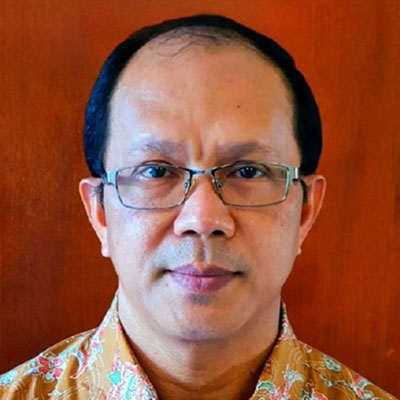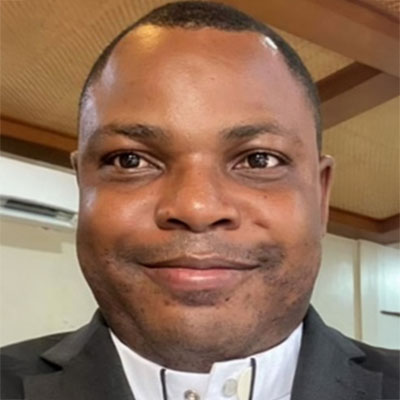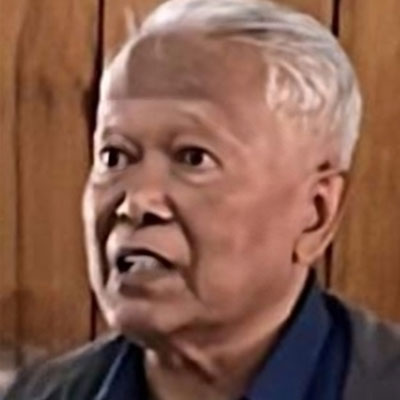 By Frans De Ridder, cicm
By Frans De Ridder, cicm
In the gospel of Luke we find this verse: Now…the people were filled with expectation… (Lk. 3: 15). CICM’s 14th Chapter is “behind” us…It took place in June 2011. As with all Chapters as it was with Vatican II: “now the people are/were filled with expectation…” (Lk. 3: 15)
Earlier in Lk 3: 10, we read: “The crowds asked him: What then should we do…?” I know that each one of us must answer this question personally. No one can dictate what I/we should be doing… Yet my 35 years of experiencing Marriage Encounter has taught me that there are quite some people who cannot think out of the box, can hardly think or imagine that there are alternatives.
We tend to take things for granted and think and behave as if the present way of living our missionary religious life is the only possible and “reasonable” one. I think the people John the Baptist was addressing were no exception. Hence John the Baptist is extremely down to earth in his reply:
— Whoever has two cloaks should share with the person who has none…
— Whoever has food should do likewise…
— Stop collecting more than what is prescribed…
— Do not practice extortion, do no falsely accuse anyone, and be satisfied with your
wages! (See Lk. 3: 11-14).
I will try my best to be concrete and down to earth. I do not have any particular confreres in mind and I beg those who feel offended to forgive me.
- Food and drink.
Something keeps bothering me for many years already. In our world the number one killer is not “cancer” or heart attack. It is obesity: 400 million are suffering from this modern dis- ease…while in our world daily 30,000 people die of famine and destitution or over 10 million a year!
What about making an option to “practice fasting” on a voluntary basis, maybe one day a week or eating/drinking less and give the money to the poor? I love a good glass of beer. Yet do we need a glass (or more) every day? And often there is “multiple choice”. The question is no longer: “do you want a glass of beer?” The question is: “what beer do you want today?” My parents were simple farmers who had to work hard to make both ends meet every year. We had beer only on Sundays and then it felt like “feast day”. Also, a real dessert was only for Sundays.
We may also not forget that CICM has had and does have its fair number of confreres addicted to alcohol! Is daily one (or more) glass(es) of whisky or brandy really so indispensable? Reading the Gospel carefully we can understand that “fasting” is one way of reconnecting with the bridegroom (Mt. 9:15).
When our spirits are low and we start doubting about God’s real presence in our lives…fasting may be a Prayer of Body and Soul. Anselm Grun wrote a remarkable booklet by this name. Allow me to quote some spiritual guides:
If all people were to accept the counsel of fasting in order to settle their differences, nothing would stand in the way of the profoundest peace in the world. (St.Basil).
DREWERMAN.
Drewerman concludes that the human drive to eat, which tries to consume everything, is “the impulse of existence”, the desire “to fill the void of nothingness”. Because he will not recognize his own nothingness, man must devour the whole world.
Bishop Aloysius Jin of Shanghai:
I knew deeply that Communism could never destroy Christianity; history has borne this out. Yet, now I worry that what communism cannot and could never do will be done by the consumer society.
This is exactly what is happening to our world…
The Belgian China missionary Vincent Lebbe, while founding his own four religious communities, warned strongly against a “bourgeois” mentality.
Peter Van Breemen in one of his books makes the statement: After Vatican II huge groups of religious left the religious life…If now in the religious life, there is everything one can dream of, then there is no more reason to leave…Yet then there is equally no more reason to join either.”
- Prayer life.
In the second half of our novitiate, we were introduced to a second mediation every
day. To my happy surprise I can witness to the fact that in Singapore and other parts of the world many lay people start doing that: twice a day half an hour of meditation, something the World Community of Christian Mediation is promoting (WCCM).
Be still and know that I am God. Psalm 46: 11
I know that the very successful USA radio and TV speaker: priest and later archbishop Fulton Sheen, spent every day of his life one full hour in Adoration of the Blessed Sacrament. For many practical reasons, I am convinced that this one hour could be well spent doing daily meditation with a mantra (for example: ma-ra-na-tha) twice a day; morning half an hour and evening half an hour. The words by Karl Rahner might well be prophetic here: The Christian of the 21st century will be a mystic or nothing at all.
3. Transportation and Travelling.
There are many good reasons for having a hard look at this aspect of CICM life. Cars are expensive and often a nuisance: the cost price, servicing, insurance, parking space, traffic jam, air pollution…There may be good reasons why confreres for their work ‘need’ a car. No problem for me. Yet this principle should not be a pretext for many a confrere having his own private car.
On top of it, cars “isolate” us from the ordinary people who travel by public transportation. I am at times surprised/ scandalized reading about confreres who “travel back” to their former mission or go for expensive holidays, even if that is paid by good friends. Does this still tally with our vow of poverty?
4. Electronic gadgets.
A computer is a handy instrument in our modern world also for a missionary. Yet, do we always need to purchase the best, most expensive, the latest on the market? This is also true for confreres who buy a camera, have a personal TV in their room, hand phones etc. Not only are those things expensive…Often they are an incredible waste of time! Often too they can undermine our spiritual life, the taste for God. Our spiritual life is gradually secularized and poisoned. Our bedrooms should be places to sleep and to pray (See Mt. 6:6) and not TV halls. And let us be honest TV, — as it is for many families— is often the end of real community life. Not only do we live in the world, more and more are we of the world…though Jesus said: “they do not belong to the world any more than I belong to the world”. (Jn. 17: 14)
In Taiwan there are quite some inspiring Buddhist Monasteries. Master Sheng Yan in Fa Gu Shan summarizes their spirituality in a few lines:
What we really need is not much.
What we want/desire is by far too much.
Go only for those things we really need.
Most of the things we want/ desire are not important.
Justice is giving away what we do not need ourselves. It belongs to the poor!
Charity is giving away from what we need for ourselves.
Summary.
St. Teresa of Avila often said: The one who has God, nothing s/he shall want!
I am convinced that this is precisely the very essence of religious life: to live a life for God, a life with God. God the joy of our hearts!
Show me the path of life, In your presence there is fullness of joy; in your right hand are pleasures for evermore! (Psalm 16: 11)








